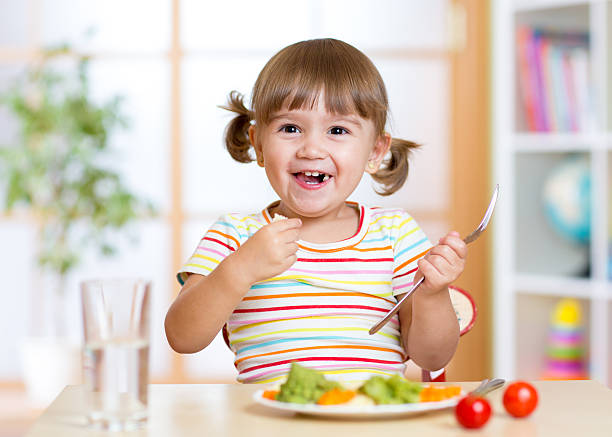Everyday foods could hold the key to unlocking your body’s natural cheerful chemicals.
Today is the International Day of Happiness, so a great time to explore how changing your diet can help to boost your mood.
Your body’s feel-good chemicals
Nutrients in food can promote the production of your body’s feel-good chemicals: serotonin and dopamine.
Serotonin regulates your mood and promotes sleep. Low serotonin is associated with depression, although it’s not known whether it causes depression or depression causes it.
Dopamine manages motivation, attention and emotional reward. The satisfaction you feel when accomplishing a goal is partly due to a dopamine rush. Low dopamine is associated with loss of interest.
Here’s what to eat
Fruit, veg and wholegrains
All vegetables and many fruits contain complex carbohydrates. These are important for stabilising your mood, as they release sugar into your body slowly. Other sources of complex carbs include wholemeal bread, brown rice, whole grain pasta, beans, pulses and oats. These foods avoid giving you the blood-sugar spikes and dips that can be caused by eating simple carbs such as sugar, white bread and white pasta.
Complex carbs also help indirectly with the production of serotonin. This is because serotonin can be made using an amino acid from your diet called tryptophan. It can be difficult to absorb tryptophan into your brain, but more may be absorbed when tryptophan-rich foods such as eggs, oily fish and chocolate with at least 70% cocoa solids are eaten alongside carbs. It’s not certain how accessible tryptophan is to the body, but it’s worth a try!
Poached, boiled, fried and scrambled eggs
Eggs are packed with healthy fats, protein and all-important B vitamins. All of these contribute to healthy brain function and have been known to protect against depression. Including poached eggs in a dinner or scrambled eggs in your breakfast routine is an easy, quick way to boost the nutritional content of your meal.
Studies suggest vitamin B deficiencies can result in a reduced production of feel-good chemicals and lead to tiredness. Other sources of B vitamins include whole grains, red meat, dairy, beans, bananas, green vegetables and beetroot.
A diet low in folate (vitamin B9) may increase the chance of feeling depressed, particularly in older people. Folate is found in green vegetables, citrus fruits, liver, beans and fortified foods.
Salmon, sardines, mackerel and co.
Oily fish, including salmon, pilchards, sardines, trout and mackerel, contain long-chain Omega-3 fats, which are important for brain function and the communication of serotonin and dopamine. Seafood is also a source of zinc, which is involved in almost every aspect of brain function, and research suggests reduces anger and depression in young women (many of whom don’t consume enough zinc).
Vary your diet for gut and brain health
Scientists know that more than 90% of serotonin is produced in the gut – but how does what you eat affect your mood?
Studies have found that people with depression and people who sleep poorly often have abnormal gut microbes. Eating to boost your gut bacteria (hungry yet?) could improve your mood as well as your diet. How to achieve this is different for everyone, and you may need to try changing your diet more than once to find the best foods for you. Try eating pre and probiotics, more veg and fibre and vary your diet.
Pre and probiotics
Eating pre and probiotics has been found to decrease anxiety and increase happiness.
Probiotics are live bacteria and yeasts found in fermented foods and some dairy products. Perhaps you’ve come across a few of these “Insta-famous” foods?
Kombucha – fermented tea
Sauerkraut – fermented cabbage
Kimchi – spicy Korean fermented vegetables)
Yoghurts – specifically “live” yoghurts
Kefir – fermented milk drink
Prebiotics are found in complex carbohydrates that we can’t digest, but your good gut bacteria like to eat them – hurrah! Here are some everyday food prebiotics sources:
Oats
Bananas
Legumes, beans and peas
Berries
Onions, leeks and asparagus
The foods that might bring you down
Sugary foods, white bread, pasta and rice
Tucking into cakes, biscuits and other sugary snacks and drinks can give you a lift if you’re feeling down. They release sugar into your blood quickly, which can swiftly increase and decrease feelings of happiness. Eating something you’ve been craving makes the body release dopamine. However, what goes up, must come down. Your blood sugar levels (which will quickly spike) will then crash, bringing on feelings of sluggishness.
Test your knowledge on carbohydrates
Saturated fat
Foods high in saturated fat, such as butter, palm oil and coconut oil, have been linked to reduced dopamine signalling in the brain. However, more research is needed before conclusions can be drawn.
5 more ways to stabilise and heighten your mood
Eat regular meals to avoid blood sugar peaks and troughs. Eat a healthy breakfast, space out your meals throughout the day and don’t overindulge at one meal. Aim for three small meals with one or two healthy snacks a day.
Don’t underestimate the power of hydration. Drinking throughout the day will help you stay alert and chipper.
Manage your caffeine intake. Anything that provides a quick burst of energy can also take it away, leaving you wearier than before. Caffeine can also affect the quality of your sleep, leaving you feeling anxious. Try decaffeinated versions or switch to a new beverage.
If you’ve lost interest in eating or you’re short of time, it is better to eat simple nutritious meals that only take a few minutes to prepare than a ready meal or nothing at all. A good meal for this is beans or eggs on wholemeal toast.
The NHS recommends getting active to better your mental wellbeing





























